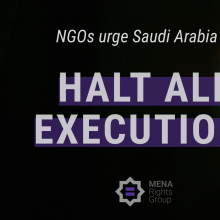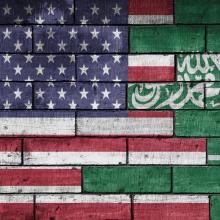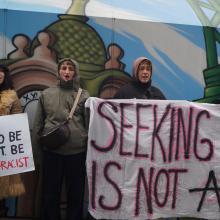July 15, 2025

Screenshot © Elhiwar Ettounsi, via YouTube.
We, the undersigned media and human rights organizations, call on the Tunisian authorities to immediately and unconditionally release Ms. Sonia Dahmani, a lawyer and political commentator who is being unjustly prosecuted under Tunisia’s repressive Decree-Law 54 for exercising her right to freedom of expression and currently serving nearly five years in prison solely for doing her job. We further call on the government to drop all pending charges against her and end the misuse of cybercrime Decree-Law 54, which has become the primary tool used by President Kais Saied’s government to criminalize political commentary and independent journalism, rather than combating actual cybercrime.
Ms. Sonia Dahmani was arrested in May 2024 and currently faces five separate cases, all in retaliation for her public commentary on government policies related to migration, governance, and civil liberties. She has already been convicted in three cases, most recently on June 30, receiving nearly five years in prison, including two separate convictions for identical remarks made on different platforms. In a fourth case, she could face up to a 10-year prison sentence for similar comments, with her next hearing scheduled for July 11. A fifth case remains open and under investigation.
Ms. Sonia’s lawyer, Sami Ben Ghazi, told CPJ that all five prosecutions against his client represent a pattern of judicial harassment aimed at silencing her personally. In prison, Ms. Sonia has endured harsh and degrading prison conditions, including sexual assault, restricted access to her family and legal team, and denial of adequate medical care. She suffers from diabetes and high blood pressure, making her detention conditions particularly dangerous to her health and well-being, according to Ms. Ramla Dahmani, Ms. Sonia’s sister, who is based abroad, and was also sentenced in absentia on July 1 to 2 years in prison in retaliation for her sister’s work.
Decree 54, introduced in 2022 — a year after President Kais Saied’s power grab — has become of the primary tool for suppressing critical voices in Tunisia. It stands in direct conflict with Decree 115, the country’s pre-existing press law, which prohibits prison sentences for media offenses and guarantees press freedom. The Tunisian government must uphold Decree 115 and its constitutional obligations and immediately stop the use of repressive laws to silence journalists, bloggers, and political media commentators.
We urge the Tunisian authorities to:
Immediately release Ms. Sonia Dahmani and drop all charges in the pending cases against her and her sister, Ms. Ramla Dahmani;
End the abusive application of Decree 54 and ensure all laws governing media and expression comply with international standards;
Restore enforcement of Decree 115 and constitutional protections for press freedom and free expression;
According to CPJ’s latest annual prison census, at least five journalists were behind bars in Tunisia on December 1, 2024, the highest number since 1992.
Signatories:
ACAT-France
ActiveWatch (Romania)
Al Jazeera Channel
ARIJ - Arab Reporters for Investigative Journalism
ARTICLE 19
Business News
Cartoonists Rights
Cedar Centre for Legal Studies (CCLS)
Committee for Justice (CFJ)
Committee to Protect Journalists (CPJ)
Danish PEN
Egyptian Human Rights Forum (EHRF)
Egyptian Initiative for Personal Rights (EIPR)
Egyptian Observatory for Journalism and Media
EuroMed Rights
Filastiniyat - Palestine
France 24 (Société des journalistes)
Free UN Coalition for Access / Inner City Press
HuMENA for Human Rights and Civic Engagement
Index on Censorship
International Federation for Human Rights
Lebanese Center for Human Rights
MENA Rights Group
OMCT / World Organization Against Torture within the framework of the Observatory for the Protection of Human Rights Defenders
PEN America
People in Need
Robert F. Kennedy Human Rights
SMEX
The Middle East Democracy Center
the Samir Kassir Foundation
The Norwegian Union of Journalists (Norsk Journalistlag)
The Tahrir Institute for Middle East Policy (TIMEP)






